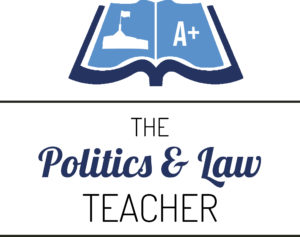Canada is Australia’s political and legal twin. It has a “Washminster” hybrid system combining the Westminster system of parliamentary government with federalism, just like Australia. It is also a constitutional monarchy with a Governor-General representing the Queen as the Canadian head of state. Like Australia’s Governor-General, the Canadian head of state is vested with significant executive and legislative power by the country’s constitution. These powers are limited by constitutional conventions in the same way they are in Australia. The roles, powers and accountability of the Canadian Governor-General are virtually identical to those of an Australian Governor-General, making the experiences of the Canadian head of state a good model for the study of the Australian Governor-General.
Julie Payette resigned as Canada’s Governor-General following accusations by some of her staff that she bullied and belittled them both in her office and on overseas trips. The allegations were investigated by the Canadian Privy Council Office (PCO) which oversees the federal public service and holds it accountable to the Prime Minister. The PCO found harassment had occurred within the Office of the Governor-General. Payette was also criticised for excessive spending on renovations to Rideau Hall – the Governor-General’s residence and office comparable to Yarralumla in Canberra – in which an expensive staircase was to be installed for her privacy.
Payette is the first Canadian Governor-General to resign since the country’s foundation in 1868. She said in her resignation that; “Tensions have arisen at Rideau Hall over the past few months and for that, I am sorry. For the good of the country and of our democratic institutions, I have come to the conclusion that a new Governor-General should be appointed. Canadians deserve stability in these uncertain times.”
Julie Payette was appointed by the Queen on the advice of Prime Minister Justin Trudeau in 2017. On paper, she was an ideal candidate for the office; which must be impartial, above politics and held by a person who can unify the nation. She was an astronaut and scientist, and as such a prominent apolitical Canadian public figure. Unfortunately, the qualities of effective leadership are not always so easy to see until after someone is in a job. Despite the mostly ceremonial duties of the office, leadership and good judgement are essential qualities in a head of state. Governors-General have a staff, who are technically public servants. A Governor-General, therefore, needs good people management skills and must know how to manage an office ethically and efficiently. They must also be able to judge public perceptions of their decisions, like installing expensive staircases in the Governor-General’s residence.
The Trudeau Government is a minority government. It is under pressure to consult with the opposition before appointing a replacement Governor-General. The opposition claims that Trudeau did not take sufficient care when appointing Payette. Trudeau defended Payette when the harassment scandal broke.
The parallels to Australia relate to the powers of the Governor-General and how the office is accountable. In both countries, the Office of the Governor-General is mostly ceremonial and serves as the apolitical figurehead of government. Both are vested with significant executive power and have other powers related to the parliament, such as dissolving the legislature, issuing writs for elections and assenting to bills. They can also prorogue, or temporarily suspend, parliament and determine its sitting schedule. Both appoint and remove federal judges. Westminster conventions place the Governor-General’s powers in the hands of elected officials, called ministers, who sit in and are responsible to parliament. The ministry must have the confidence of the lower house in both countries. The Governor-General is expected to act on the advice of the ministry except in emergencies. In an emergency, the reserve powers may be used to restore constitutional government if it is threatened by a political crisis.
Peter Hollingworth is one of three Australian Governors-General to resign and the only one who, like Payette, did so to protect the integrity of the Office of the Governor-General. The others were Sir John Kerr in 1977 and the first Governor-General Lord John Hope in 1901. Hollingworth was embroiled in scandals related to his earlier handling of abuse allegations made against priests in the Archdiocese of Brisbane when he was the Archbishop. A Royal Commission investigated these issues and in 2002 concluded that he had knowingly misled a church inquiry into the allegations. He resigned as Governor-General in 2003 to protect the integrity of the Office of the Governor-General.
Both the Payette and Hollingworth cases illustrate how a Governor-General may be held to account. Both were accused of scandalous conduct, both were subject to increasing public pressure, both were defended by the Prime Ministers who appointed them and both ultimately resigned to preserve the integrity of the Office of the Governor-General. A key difference was the inquiry into Payette’s conduct by the CPO. Hollingworth was not the subject of an inquiry while in office, however, he was interviewed by a Royal Commission years after his resignation.
Both the Payette and Hollingworth cases led to questions about the entitlements of former Governors-General, such as generous life-long pensions and privileges, if they resign in such circumstances. In 2019, West Australian Greens senator Rachel Siewert introduced a private senators bill that would have stripped Hollingworth of his $357,000 annual pension and entitlements. It was defeated by the major parties. Similar calls were made to review Payette’s entitlements following her resignation.
Syllabus references:
- Unit 3: The roles and powers of the Governor-General
- Unit 4: The accountability of the Office of the Governor-General
References
Cecco, L., 2021. Canada’s Governor-General Resigns After Report Finds Workplace Harassment. [online] the Guardian. Available at: <https://www.theguardian.com/world/2021/jan/21/canadas-governor-general-resigns-report-harassment?CMP=Share_iOSApp_Other> [Accessed 22 January 2021].
Robertson, J., 2019. Senator Pushes To Strip Former Governor-General Peter Hollingworth Of $600K-A-Year Entitlements. [online] Abc.net.au. Available at: <https://www.abc.net.au/news/2019-11-13/peter-hollingworth-would-lose-entitlements-under-private-bill/11697050> [Accessed 22 January 2021].

